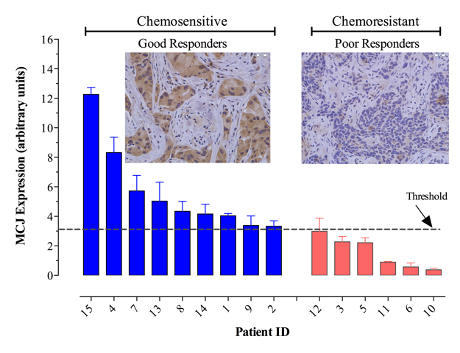The Missing Kingdom: Why Fungi Must Be Central to Conservation Strategy
28 December 2025
Published online 15 June 2016
A new genetic marker predicts if patients will respond and provides potential for alternate treatments.

© Basel al-Ramadi et al.
MCJ, or methylation-controlled J protein, regulates cell metabolism and maintains homeostasis. Cancer cells that lose MCJ expression become metabolically hyperactive and resistant to chemotherapy, which contributes to treatment failure, the research shows1.
The discovery means doctors can avoid exposing women with unresponsive cancers to the toxicities of chemotherapy before surgery. It also suggests that restoring MCJ expression is a viable therapeutic target for new treatments.
The study, published in JCI Insight, is the result of research conducted at the College of Medicine and Health Sciences, United Arab Emirates University, Tawam Hospital-Johns Hopkins Medicine, Al-Ain, and the University of Vermont School of Medicine, USA.
Clinical and pathological data from an examination of 62 breast cancer patients undergoing pre-surgery chemotherapy treatment at Tawam Hospital show that patients with low MCJ-expressing tumours responded poorly to chemotherapeutic drugs.
“This is the first clinical trial to correlate MCJ expression, at both protein and mRNA levels, with outcome of chemotherapy,” says author Basel al-Ramadi.
"Based on our data, we derived a statistical threshold for MCJ expression that could predict whether or not patients will respond to chemotherapy."
These conclusions were strengthened by an analysis of gene expression and clinical data of 1,660 breast cancer patients held in global information repositories.
Another mammary tumour mouse model showed that mice deficient in MCJ developed more chemoresistant tumours.
The role of MCJ in treatment has potential relevance for other cancers, including ovarian and bowel cancer, says al-Ramadi. The team will now work on how MCJ precisely influences chemoresistance to develop a target for cancer treatment.
doi:10.1038/nmiddleeast.2016.92
Stay connected: